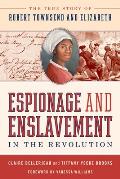Richard Palmes, Hot-Tempered Apothecary
One of the people of pre-Revolutionary Boston I’m collecting information on is Richard Palmes.
He was born and raised in New London, Connecticut, and moved to Boston as a young man to set himself up as an apothecary. That meant he had genteel status, but not at the top rank of society.
In the wake of Nathaniel Wheelwright’s financial failure [subject of the first essay made available to Boston 1775’s “Buff and Blue” supporters], Palmes declared bankruptcy. He had announced his business just a few months before, so he was not off to the best start.
The man was at the Boston Massacre, at the front of the crowd talking to Capt. Thomas Preston. In fact, some writers have misread the record of that event and blamed Palmes for starting the violence. Palmes was quite clear that he swung his cane around after some of the soldiers fired their guns. But he did swing his cane.
By “Palmes was quite clear,” I mean he testified about the Massacre in more venues than any other witness. He testified at a coroner’s inquest and both major trials. His words appeared in both the Short Narrative and the Fair Account. When he didn’t think the published trial transcript was accurate, he published his version of his own testimony in the newspapers over a year after the event.
During the war, Richard Palmes became an officer of the Continental Marines. Even by the challenging standards of American naval officers, he appears to have been quarrelsome and hard to work with.
After the fighting was over, Palmes settled in Charleston, South Carolina, and started a mercantile business there. He bought a black woman from New York named Elizabeth or Liss as a slave, contrary to the seller’s agreement with her former owner, Robert Townsend.
Palmes is thus a figure in Claire Bellerjeau and Tiffany Yecke Brooks’s book Espionage and Enslavement in the Revolution: The True Story of Robert Townsend and Elizabeth.
Bellerjeau will speak about that book on Sunday, February 12, as part of Fort Ticonderoga’s Author Series. This is an online event, free to members and $10 for other registrants.
He was born and raised in New London, Connecticut, and moved to Boston as a young man to set himself up as an apothecary. That meant he had genteel status, but not at the top rank of society.
In the wake of Nathaniel Wheelwright’s financial failure [subject of the first essay made available to Boston 1775’s “Buff and Blue” supporters], Palmes declared bankruptcy. He had announced his business just a few months before, so he was not off to the best start.
The man was at the Boston Massacre, at the front of the crowd talking to Capt. Thomas Preston. In fact, some writers have misread the record of that event and blamed Palmes for starting the violence. Palmes was quite clear that he swung his cane around after some of the soldiers fired their guns. But he did swing his cane.
By “Palmes was quite clear,” I mean he testified about the Massacre in more venues than any other witness. He testified at a coroner’s inquest and both major trials. His words appeared in both the Short Narrative and the Fair Account. When he didn’t think the published trial transcript was accurate, he published his version of his own testimony in the newspapers over a year after the event.
During the war, Richard Palmes became an officer of the Continental Marines. Even by the challenging standards of American naval officers, he appears to have been quarrelsome and hard to work with.
After the fighting was over, Palmes settled in Charleston, South Carolina, and started a mercantile business there. He bought a black woman from New York named Elizabeth or Liss as a slave, contrary to the seller’s agreement with her former owner, Robert Townsend.
Palmes is thus a figure in Claire Bellerjeau and Tiffany Yecke Brooks’s book Espionage and Enslavement in the Revolution: The True Story of Robert Townsend and Elizabeth.
Bellerjeau will speak about that book on Sunday, February 12, as part of Fort Ticonderoga’s Author Series. This is an online event, free to members and $10 for other registrants.


No comments:
Post a Comment